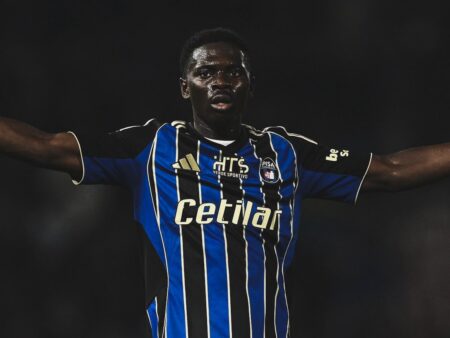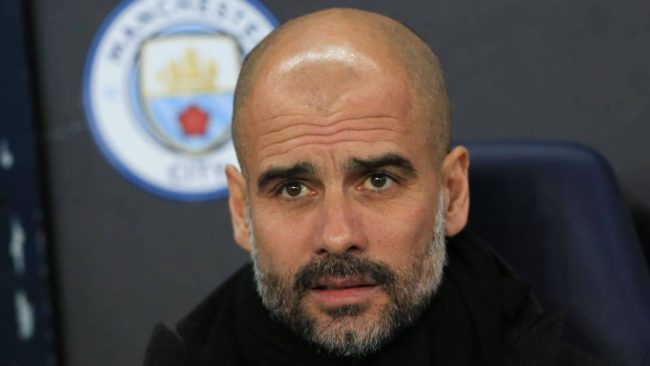Ahead of tonight’s Premier League clash between Manchester United and Arsenal at the Old Trafford, former Red Devils’ midfielder, Clayton Blackmore, has given his thoughts on the importance of VAR in football, and recalled the infamous brawl against the Gunners when both sides clashed on October 20 1990.
Arsenal won the match 1-0 at the Old Trafford with Anders Limpar’s solitary match winner scored at the stroke of halftime. Then after 60 minutes of play, a squabble erupted. Arsenal left-back, Nigel Winterburn’s awful tackle on his United counterpart, Denis Irwin, started it all. Irwin was challenging Anders Limpar for possession. In retaliation, Brian McClair and Irwin lunged at Winterburn and Limpar. And the situation escalated with almost all the players on the pitch involved in a brawl.
The FA would later deduct two points from Arsenal and one from United, plus fines, as punishment for soiling the reputation of the game. However, that did not hurt the Gunners much as they went on to win that 1990/1991 Football League First Division title.
Only Limpar and Winterburn were booked by centre referee, Keith Hackett amidst that infamous brawl.
In an exclusive interview with Bookmakers.com, Blackmore joked that VAR in those days would have cleared the pitch of most of the players (though didn’t include himself!), but intimated that he would like to see former players involved in the process in future.
Also Read: Guardiola Beats Ferguson’s Premier League Record After Man City Beat Villa
Blackmore believes that the system needs to be run by former players, and the game as a whole should rely more on the athletes who have been there and done it on the pitch, as opposed to solely on referees who never played at the highest level.
“VAR would have cleared the pitch had it been around in 1990,” Blackmore told Bookmakers.com.
“There would have been about five or six of us left and I’d have been one of them. I was playing left back that day but I didn’t go over to get involved. I was doing enough running during the game to bother to run and get involved and push someone.
”There were a few punches thrown and a couple of kicks etc. Looking back, there’s been a few bust-ups with Arsenal over the years. They were always aggressive games.
“The season or two before, Arsenal were on a good unbeaten run, and big Norman Whiteside had a bit of a fight with David Rocastle after I tackled Rocastle. There was proper punching and there was another fight going on between David O’Leary and Terry Gibson in the other half.
“Arsenal did not like losing, that’s for sure. And then there’s the time years later when Ruud van Nistelrooy missed a late penalty and Martin Keown was all over him. They had a serious problem losing to us. There was a big mental issue with the Arsenal team losing to us.
“I didn’t hate Arsenal. Liverpool was the big rivalry and there wasn’t much of a hatred with Manchester City. Liverpool were winning stuff all the time and we played well against them, but we just couldn’t get over the line in terms of winning the league.
“That brawl with Arsenal probably wouldn’t have happened had VAR been in the game back in 1990. Players are more aware of things now that there are more cameras following the action.”
That now-infamous brawl at Old Trafford ended up with points deductions for both sides, but referee Keith Hackett only showed a yellow card to two Arsenal players. While an incident like that would be relatively straightforward to deal with today, Blackmore believes how VAR is used in a more general sense needs to be discussed, and feels governing bodies should look to ex-players to assist the process.
“I’d have former players doing VAR,” Blackmore said. “I’ve watched it in rugby union for years and their referees are better than our referees for a start. They know the game inside out and they know when players are cheating.
“Football needs people to run VAR who know the game because everybody will see it the same way. Players need to have a bigger say in the rules of the game. VAR is there to stop cheating but it’s not quite done yet. They need to show the footage again because they’ve stopped showing footage of the people making the decision and what they are looking at.
“VAR is there to get the right decisions. Every fan watching knows what the decision should be. Fans ask me how VAR can get it wrong so often. It’s not VAR, or the TV, it’s the person watching the footage.
“They are former referees and they have been doing that job for many years on the pitch. So they must have got a lot of things wrong as a referee.
“When I did my UEFA badges with Graeme Souness and Neville Southall, referees gave us scenarios and we got about 60 per cent of them right. We didn’t think that made sense as we had played the game. But because the way referees looked at things was different, we ended up arguing with the referee.
“How can referees get things wrong these days? With all the TV evidence, that should be straightforward. Even the offside trap is confusing. As Souness said the other week, he wants to see space between the players like the old days. If there is a gap between them, then he’s offside. It looks like they are trying to find a fingernail to rule them offside.
“Refereeing is the hardest job in football. Playing the game is easy. VAR is there to help them, but it’s like referees don’t want TV to help them. If they get a decision wrong, fine. I saw a game in Germany where the referee showed a player a red card, but then reviewed it on the TV by the side of the pitch and he’s come back and admitted he got the initial decision wrong. Fair play, that’s how it should be done.”





